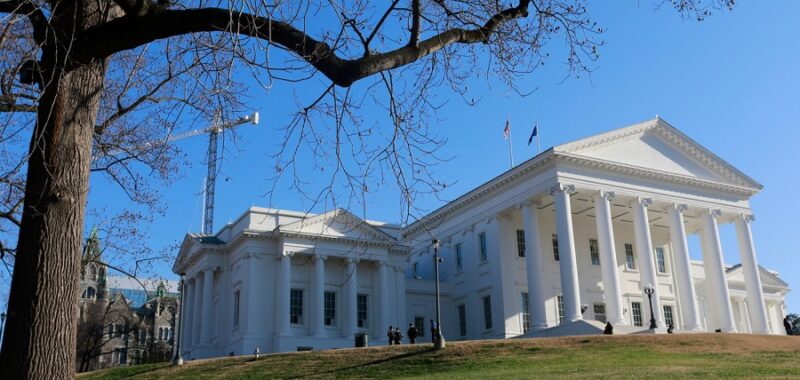
Democrats are gearing up for two northern Virginia-area special elections in the state Senate and House of Delegates next month that could set the tone for what is expected to be a consequential election year in the commonwealth.
The special elections in state Senate District 32 and House District 26, both located in Loudoun County, are slated for Jan. 7. Both seats are considered safe for Democrats, but the party points out that if it was to lose both races it would tie the House of Delegates and essentially deprive Democrats of control of the Senate with Lt. Gov. Winsome Sears (R) playing the tiebreaker, negatively impacting their performance in the next legislative session.
The elections come amid warning signs that Democratic support in the region appeared to slip in last month’s general election, something that Democrats hope to improve on ahead of next year’s gubernatorial and House of Delegates races.
“It would be a shocker if these races were even close. These are seats that the Democrats should win by 20 points or more,” said Bob Holsworth, a veteran Virginia political analyst.
But Vice President Harris’s performance in Loudoun County in the presidential election was reflective of the ground she lost in other blue areas of the country against President-elect Trump. President Biden won the county by 26 points in 2020 while Harris won it by 16 points. Former Gov. Terry McAuliffe (D) won the county by 11 points in his unsuccessful second bid for governor against Gov. Glenn Youngkin (R) in 2021, which saw lower turnout in a nonpresidential year.
While the two races have been described as shoo-ins for Democrats, the Democratic Legislative Campaign Committee has telegraphed that the party is taking the contests seriously.
Earlier this month, the committee named state Senate candidate Del. Kannan Srinivasan (D) and House of Delegates candidate JJ Singh to its “spotlight” program in which the committee will support the two candidates with fundraising and organizing. Additionally, the committee announced it was investing $100,000 into Virginia’s legislative caucuses ahead of next month’s special elections.
Virginia Democrats say the races are essential to fortifying the Democratic firewall in state legislatures across the country in response to the federal Republican trifecta in Washington.
“I think there’s a lot of anxiety and agita about what’s going to happen with the so-called trifecta,” Singh said, referring to issues like cutting down the federal workforce and abortion.
“There’s a risk that that mindset, that level of politics, that style will infiltrate itself here in Virginia and that’s what Republicans in Virginia want to do. So it’s up to us in the House and Senate to protect our values,” he continued, referring to Virginia’s General Assembly.
Srinivasan noted that he was still running on state and local issues despite the political environment in nearby Washington.
“Ultimately the state issues are extremely important,” he said, noting his focus on the economy, gun safety, abortion and Medicaid expansion. “There are many things we can do in the state that we improve on and we can touch people’s lives.”
Republicans argue Democrats are ginning up excitement about two races they say won’t have any bearing on the general off-year elections in the state next year.
“Democrats have this habit of trying to turn these random special elections that they’re heavily favored in into referendums on what’s going to happen,” said Max Docksey, political director at the Republican State Leadership Committee. “What they’re really trying to do is recover from the horrible election night they had and they’re going to try to utilize these D plus 21, D plus 22 seats just to do that.”
“I don’t think this should be viewed as a sign of what is to come,” he added. “We haven’t had enough time to see what the Republican legislatures, which we expanded across the country, are going to be able to do with the newfound power we’ve gained. We haven’t seen what President Trump is going to be able to do. What a trifecta control of the federal government is going to be able to do for Republicans.”
And the Jan. 7 special elections will be drastically different from the presidential election in terms of turnout and enthusiasm despite the frequency of elections in Virginia. This election in particular appears to be prime for low turnout given it’s taking place after the holidays and two months after a blockbuster presidential election.
Next November’s elections in Virginia at the gubernatorial and House levels will also see lower turnout compared to presidential years. The primaries haven’t taken place, but Sears and Rep. Abigail Spanberger (D-Va.) are the likely nominees for their respective parties.
Democrats will need to make sure they are driving up turnout in areas like Loudoun County in an effort to offset potential Republican enthusiasm in red enclaves of the state.
“[Democrats] don’t want to see a further reduction in their advantage in Loudoun because Democrats are not enthusiastic about turning out,” Holsworth said.

